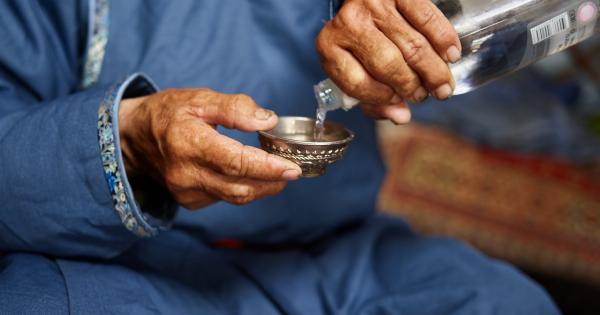Alcohol is a popular social lubricant, and many people consume it to reduce social anxiety, relax, and have a good time.
However, alcohol is a depressant that affects the central nervous system, and it has a significant impact on male sexual performance. In fact, excessive alcohol consumption can lead to erectile dysfunction, decreased libido, delayed ejaculation, and other sexual dysfunctions that can affect a man’s quality of life.
Alcohol and Erectile Dysfunction
Erectile dysfunction is a common sexual dysfunction that affects millions of men worldwide. It is characterized by the inability to achieve or maintain an erection long enough for sexual intercourse.
While there are various causes of erectile dysfunction, excessive alcohol consumption is a significant risk factor. Alcohol can affect male sexual performance by:.
1. Lowering Testosterone Levels
Testosterone is a male sex hormone that plays a crucial role in male sexual function. It is responsible for maintaining sex drive, energy levels, and muscle mass.
However, excessive alcohol consumption can lower testosterone levels, leading to decreased libido, weakness, and fatigue. This can make it difficult for men to achieve and maintain an erection during sexual intercourse.
2. Damaging Nerve Endings
Alcohol can damage the nerve endings in the penis, leading to decreased sensitivity and difficulty achieving and maintaining an erection. Alcohol also affects the blood vessels, reducing blood flow to the penis, which can lead to erectile dysfunction.
3. Affecting Mental Health
Alcohol consumption can cause depression and anxiety, which can contribute to erectile dysfunction.
Additionally, alcohol can lead to poor decision-making, which can lead to risky sexual behavior and unprotected sex, increasing the risk of sexually transmitted infections (STIs) and unwanted pregnancies.
Alcohol and Delayed Ejaculation
Delayed ejaculation is another common sexual dysfunction that affects men. It is defined as the inability to ejaculate or a prolonged time to achieve ejaculation.
While there are various causes of delayed ejaculation, excessive alcohol consumption is a significant risk factor. Alcohol affects male sexual performance by:.
1. Affecting Nerve Endings
Similar to erectile dysfunction, alcohol can damage the nerve endings in the penis, leading to decreased sensitivity and delay or difficulty achieving ejaculation.
2. Reducing Testosterone Levels
Low testosterone levels can contribute to delayed ejaculation, as testosterone is responsible for regulating the orgasm-refractory period (the time it takes for a man to achieve a second erection after ejaculation).
Low levels of testosterone can lead to longer refractory periods, resulting in delayed ejaculation.
Alcohol and Libido
Libido, or sex drive, is an essential component of male sexual performance. While alcohol consumption can initially increase libido, excessive alcohol consumption can lead to decreased libido. Alcohol can affect male sexual performance by:.
1. Reducing Testosterone Levels
Low levels of testosterone can lead to decreased libido, as testosterone is responsible for maintaining sex drive in men.
2. Affecting the Central Nervous System
Alcohol is a depressant that affects the central nervous system, leading to decreased arousal and sexual desire.
Conclusion
Alcohol consumption can have a significant impact on male sexual performance, leading to erectile dysfunction, delayed ejaculation, and decreased libido.
While occasional moderate alcohol consumption may not have a significant impact on male sexual function, excessive alcohol consumption can lead to long-term sexual dysfunctions that affect a man’s quality of life. Therefore, moderation and responsible alcohol consumption are essential to maintain optimal male sexual performance.































